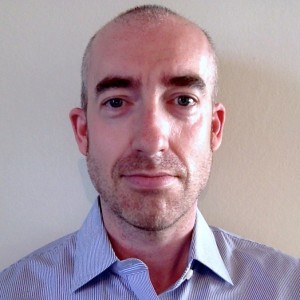Jun 25
2014
Health IT Thought Leadership Highlight: Alexander Blau, MD, Medical Director, Doximity

Doximity is the largest medical network with one in three U.S. physicians as members. Physicians use Doximity to instantly connect with other healthcare professionals, securely collaborate on patient treatment, grow their practices and discover new career opportunities.
Its vision is a future where medical communication is effortless — fast, simple, seamless and secure. Its mission is to “help physicians transcend the fragmented U.S. healthcare system and succeed in the care for their patients.”
Doximity was founded by Jeff Tangney, co-founder and former COO of Epocrates (EPOC), and launched in March 2011. Based in Silicon Valley, it’s backed by Emergence Capital Partners, InterWest Ventures, Morgenthaler Ventures (now Canvas Fund), Draper Fisher Jurvetson, T. Rowe Price and Morgan Stanley Investment Management.
Here, Alexander Blau, MD, vice president of physician marketing and medical director for Doximity — responsible for marketing and user acquisition teams oversees the development of clinical programs, including a socially curated medical literature filter and case-based discussion forums, manages the aggregation, analysis and product integration of diverse healthcare data in charting the first-ever nationwide clinical expertise map — discusses the company, its future and what he’s seeing from his perch.
Give us the short story on what you do and how you came to health IT?
My background is as an emergency physician. During my training, I was drawn to the latest in mobile health technology and eventually built my own app for medical interpretation. From that moment, I knew I was hooked on health tech. Three years ago, I joined Doximity to join a larger team to develop yet more tools that help doctors practice medicine every day.
Tell me about Doxmity. There’s been some press lately about how it’s really innovating the space. What are you doing that makes for such success? Care to share the secret sauce?
Doximity is the first health tech company really built for physicians — as opposed to hospital administrators, billing departments, etc. In just three years, we’ve grown to be the largest network of verified physicians in the US, thanks to our focus on what doctors truly need from technology. Our focus on doctors is the secret sauce.
What are some of the misconceptions you face? Obstacles you must overcome?
There’s a misconception that physicians aren’t technology savvy, which is absolutely not true. Doctors have been among the earliest adopters of all kinds of communication technologies starting with pagers and the first smart phones. When it comes to social media, doctors are necessarily skeptical about privacy and HIPAA compliance. The great thing is that Doximity is specifically built to address physician privacy requirements and enable them to communicate professionally on the mobile devices they rely on.
How do your users spend their time with the service? What do they find more fulfilling or surprising?
There are two main ways physicians use Doximity. First, to stay current with medical news and career tools, all personalized to their own specialty and clinical interests. Second, they exchange secure messages with their colleagues. Doximity offers the only institution-agnostic, HIPAA-compliant platform for sharing medical information — aside from the fax machine.
Tell me about reputation building online? How is it misunderstood, dangerous, beneficial? What do physicians need to do to manage them effectively?
Every doctor should “Google” themselves to see what comes up, and to see just how much of that information is outside their control. Doximity is one of the few places where physicians can curate their professional profiles and take control of those search results. We’re strict about it, which has earned us the trust of sources like Cleveland Clinic and U.S. News & World Report to provide the most accurate physician profiles online.
What’s your prediction for what will change five years from now in health tech?
When thinking about changes in healthcare, it’s really more like 15 years, not five years. Healthcare moves at a geologic pace. We are in the midst of a world-shaping, continent-shaping shift, but it happens one centimeter at a time. There is going to have to be a unified platform for health data and care coordination at some point soon. And I don’t think true interoperability is going to evolve naturally between institutions that are increasingly in competition for patients. It is more likely to come from a neutral third party technology that bridges systems and is designed primarily for healthcare professionals. That platform will also need to integrate the exploding ecosystem of health apps and quantified self-data, and provide actionable analytics translatable to both care providers and patients.
What are some of the biggest health IT changes coming our way and how are you preparing?
Vinod Khosla would have you believe that doctors are on the verge of being replaced by computers any day now. I see it very differently. Calculators didn’t replace accountants; they empowered them to work more efficiently and accurately. I believe the greatest promise of health tech is that it can free us, as caregivers, to focus less on administrative burdens (e.g. billing, charting and faxing record requests) and spend more time doing what we do best: caring for our patients.